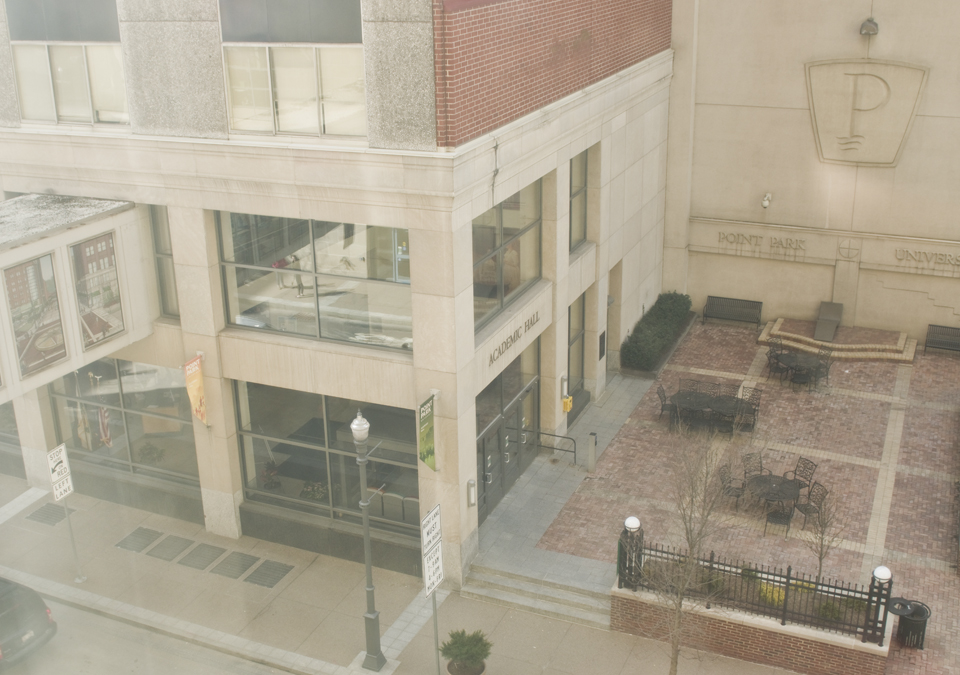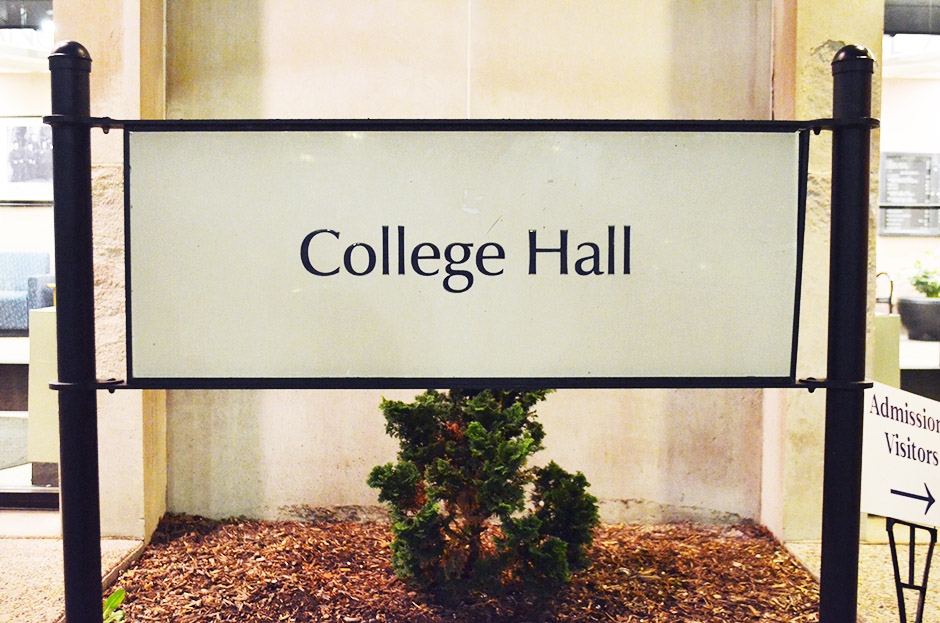

By Julian Routh | News Editor
While the adjunct union at Duquesne awaits a ruling from the National Labor Relations Board, another adjunct union is organizing just blocks away in the city.
Part-time faculty members at Point Park University who are unhappy with wages, benefits and office space are in the early stages of forming a union, with assistance from the United Steelworkers.
The USW, the same organization that helped Duquesne’s adjuncts unionize, is collaborating with the adjuncts to prepare a petition to the NLRB by the end of the semester asking for an election, according to union organizer Robin Sowards. The election, if granted, would prompt the NLRB to certify the union.
Sowards claims that Duquesne’s administration originally signed a stipulated election agreement accepting NLRB jurisdiction, but backed out after the election went in the adjuncts’ favor.
Otherwise, the adjuncts at both universities are in similar situations.
“Part time faculty [at both universities] don’t have access to healthcare and have no job security from one semester to the next,” Sowards said. “But the pay is lower at Point Park.”
Part-time instructors at Point Park make $2,091 to $2,727 per course, according to University spokesman Lou Corsaro.
At Duquesne, adjuncts are paid $3,500 per course. The rate will be increased to $3,750 starting July 1, spokeswoman Bridget Fare said.
Point Park, which enrolls approximately half the number of undergraduate students as Duquesne, employed 318 part-time instructors and 136 full-timers in the fall 2013 semester, according to the University’s 2013-14 Fact Book.
Hennigan responded to USW’s claims at a meeting on March 19 in the school’s Academic Hall.
“The only comment I will make is that the folks who are doing the organizing for the United Steel Workers have done a very good job of misleading in their documents and distorting facts, which is not something that we value as faculty members,” Hennigan said to Point Park’s student newspaper The Globe on Tuesday.
Corsaro declined to comment to The Duke on behalf of the University.
English instructor Mary Grace Gainer, who is one of those adjuncts, said part-time faculty at Point Park are given “insulting” compensation and little office space. She shares an office with over 10 other adjuncts, and they all use one computer.
“When people complained a little bit, we got this letter from [University President Paul Hennigan],” Gainer said. “We were told in writing we didn’t need desks and computers to do our jobs. I don’t need a computer?”
Because of her doctorate degree, Gainer makes $2,200 per class, an amount she said Point Park officials apologized for when she was hired last fall.
Sowards said adjuncts like Gainer should have a voice in issues like job security and per-course salaries.
“You have to have both sides at the table, so you can have a real open line of communication,” Sowards said. “It can’t be an asymmetrical situation. The union is the best way to prevent that.”
Union organizers from USW distributed a fact sheet to Point Park faculty earlier this month detailing adjunct wage information. According to the handout, adjunct faculty may teach a maximum of six courses per year at the University. This equates to a maximum salary of $16,362, which is below the federal poverty threshold for a single person with one child.
Pittsburgh City Council adopted a resolution on March 4 asking universities in the city, including Point Park and Duquesne, to recognize the unions.
The adjunct unionization efforts at Duquesne are currently on hold, as the NLRB is still deciding whether or not the University is exempt from recognizing the union. In fall 2013, 51.5 percent of faculty at Duquesne worked part-time.



